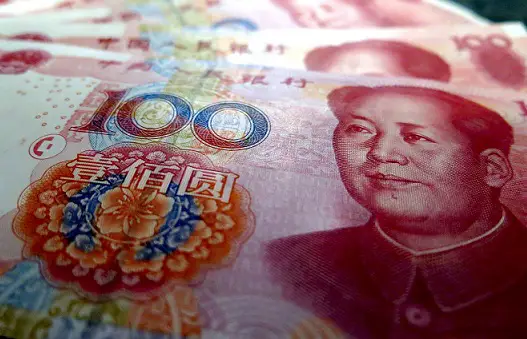New data released on Monday showed that China’s economy grew slower than expected over the second quarter, with consumer spending slowing and the property market continuing to stagnate, leading to more calls for Beijing to intervene with increased stimulus measures.
Year over year the gross domestic product (GDP) expanded 6.3% for the second quarter, according to data released by the National Bureau of Statistics on Monday, which was below the median forecast from economists surveyed by Bloomberg, which predicted it would come in at 7.1%.
June’s monthly indicators were mixed, with retail sales growth sliding noticeably and the property market weakening, though industrial production grew.
Hao Zhou, chief economist at Guotai Junan Hong Kong Ltd said, “This is a consumption-induced slowdown, which calls for policy support on the demand side. We believe further rate cuts are more or less warranted.”
Beijing is being confronted with a plethora of economic challenges as it pursues a moderate target for GDP growth of roughly 5% for the year, including the looming possibility of deflation, falling exports, and a property sector which is weakening. Although the People’s Bank of China did not lower rates on Monday, many analysts are predicting it will being easing policy in the coming months to spur growth. It last cut its policy rate in June.
As of the mid-day break, China’s benchmark CSI 300 index of stocks dropped 1.1%, as Asian peers dropped more broadly. It was the first decline for the index in three sessions. As of 11:33 AM local time, the onshore yuan was down 0.35% at 7.1665 per dollar.
In a statement, the NBS said that as the economy rebounded, the “global political and economic situations are complicated, and the domestic economy’s recovery and development foundation is still not solid yet.”
The data also clarified the extent of the growing youth unemployment, with the unemployment rate for those 16-24 years old hitting a new high of 21.3% in June, and it may climb still higher in the ensuing months.
Zhiwei Zhang, president and chief economist of Pinpoint Asset Management, noted that the nominal GDP growth was below the inflation-adjusted growth for the second quarter, which could be taken to mean the “risk of deflation is serious.” A measure of inflation in the economy, the GDP deflator, went negative according to calculations from Bloomberg economics, the first time it has done so since 2009.
Xing Zhaopeng, senior China strategist at Australia & New Zealand Banking Group Ltd., pointed out that as a result of the data, we may see officials now accelerate fiscal spending to increase investment. Although analysts are expecting the Communist Party’s Politburo meeting later in July to be the primary source of guidance on the regime’s fiscal policy with respect to the matter, Xing has said there may be some fiscal measures announced prior to the meeting.
He said, “There has been a lot of signals including conferences between the government and foreign investors and entrepreneurs, which suggest that follow up policy will come. Fiscal spending will be the major focus in the next two weeks.”
Frederic Neumann, chief Asia economist at HSBC Holdings Plc. noted that the steps the government takes will likely be targeted and precise, and that they are looking at “putting the economy on a long-term sustainable trajectory,” adding, “Overly stimulating demand in the short-term may prove counter-productive by stoking the build-up in debt and accentuating some of the economy’s imbalances, such as its reliance on a vast housing construction sector.”

